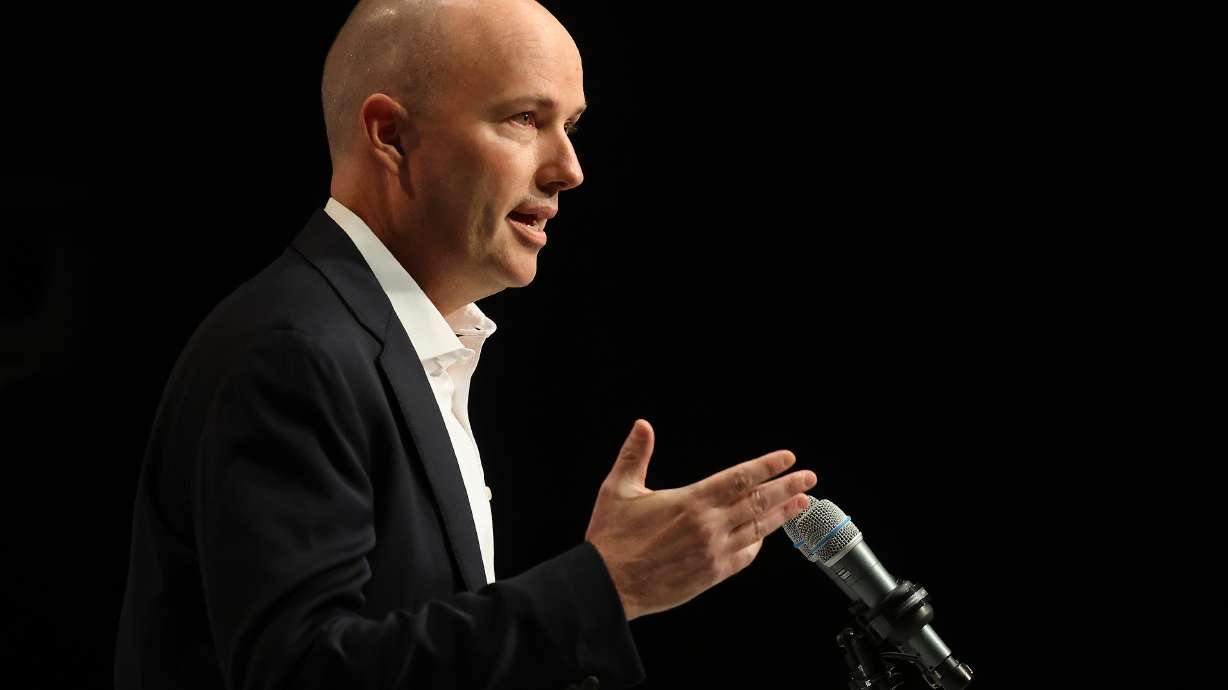Estimated read time: 4-5 minutes
- Gov. Spencer Cox discussed the Trump administration's deportation policies and targeting of Ivy League universities.
- Cox expressed concerns over potential misuse of tax-exempt status targeting conservative institutions under a future Democratic president.
- The governor said he is "not surprised" by the number of signatures gathered to put a referendum of HB267 on next year's ballot.
SALT LAKE CITY — Utah Gov. Spencer Cox addressed the Trump administration's targeting of Ivy League universities and handling of deportations and congratulated organizers of the Protect Utah Workers after the group submitted hundreds of thousands of signatures in the effort to overturn HB267.
Cox said he's "not surprised" organizers of the effort to overturn a bill stripping public unions of bargaining rights have gathered more than 320,000 signatures and also made clear he's not involved in talks to amend that law in a special session this year.
The governor signed HB267 in February but said he's never been fully comfortable with everything it does. Cox said at the time he signed it, he believed the bill was something that could have galvanized the Utah Education Association and acknowledged during his monthly PBS Utah news conference Thursday that the support for the referendum effort so far is "very impressive."
"I want to congratulate them for their signatures — not just the UEA but others, as well. It takes a lot of work ... and to get 300,000 signatures is very impressive," he said. "People ask if I was surprised, and I'm actually not surprised. It's called organized labor for a reason: They're actually organized. This is one of the few areas where you can actually do something like that because your organizations are already in place."
Those 320,000 signatures still need to be verified by county clerks, and efforts are already underway to get signees to remove their names from the ballot. So, Cox said he is unsure "if you can extrapolate the number of signatures to broad public support over a year and a half" — when the potential referendum would be put to voters in November 2026.
He said there's a "lot of misinformation" about what the bill does, noting that only a few public unions actually engage in collective bargaining to negotiate wages, benefits and workplace protections for members.
"It doesn't have as big of an impact as people think it does," he said.
Utah's legislative session ended last month, and lawmakers are planning to convene for interim meetings in May. They could work to address issues on several other bills that were vetoed by the governor, but Cox said Thursday, "Right now, I've not had any discussions about readdressing that issue or (HB267)."
Trump threatens to remove Harvard's tax-exempt status
Cox was asked about President Donald Trump's threats to remove Harvard University's tax-exempt status, and while he said he's had "lots of disagreements" with how the Ivy League university has operated, the governor said he's "wary" that similar methods could be used to target conservative institutions the next time a Democrat is in office.
"I am worried about the destruction of norms that happened; I worried about it during the Biden administration," Cox said of the former president's pardons of some of his family members.
Trump has accused elite universities of antisemitism for their handling of pro-Palestinian protests in the wake of the Oct. 7, 2023, attacks on Israel by Hamas, and accused the universities of pushing Marxist ideologies. Cox encouraged people to "try a thought experiment" imagining how they would respond if a future Democratic president tried the same thing.
"Imagine a world where (California Gov.) Gavin Newsom gets elected president and decides that he wants to go after conservative causes, right?" Cox said. "That he thinks, you know, religion should not be exempt. And then we have institutions in our state — like Brigham Young University or a church that is headquartered here — who is now facing the very real possibility of that type of backlash. Or imagine going after Second Amendment groups. ... It just scares me. I think we should tread very carefully."
Asked if he thinks Trump is risking a "constitutional crisis" after he appeared to defy a court order to "facilitate" the return of Kilmar Abrego Garcia, a Salvadoran man who was mistakenly deported to a prison in El Salvador without due process, Cox said the administration should probably return him and go through the legal deportation process but that pushing at the "boundaries" of constitutional authority is normal.
"It's not the worst thing to challenge those norms, see where the lines are and then work within those," the governor said.
But Cox said due process is important to follow "because that's how you determine if someone is a U.S. citizen or not, and that really matters."
"You don't have that type of constitutional protection to protect someone who's here illegally; you have that type of protection to protect those of us who are here legally," he said.









